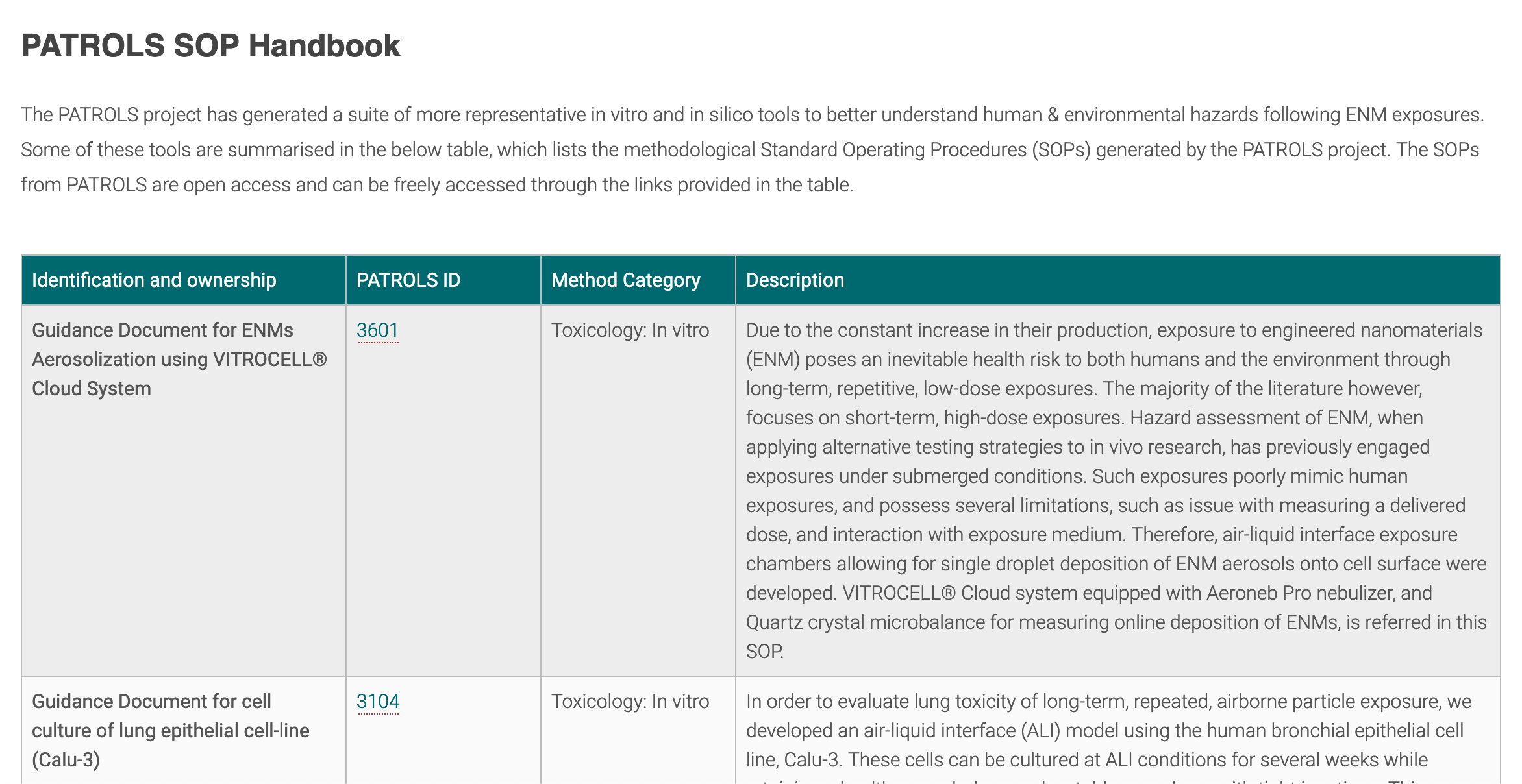PATROLS Project Launches SOPs Handbook

The Horizon 2020 funded PATROLS project (https://www.patrols-h2020.eu/) has recently published its final SOPs (standard operating procedures) handbook. The project Physiologically Anchored Tools for Realistic nanOmateriaL hazard aSsessment (PATROLS) has brought together a range of partners from academia, industry, risk assessment and policy makers to develop advanced tools and methodologies for nanomaterial safety assessment. Providing effective laboratory and computational tools to predict potential human and environmental hazards from engineered nanomaterial exposure, PATROLS is looking to develop the next generation of methods to help reduce reliance upon animal testing and support the better implementation of safety frameworks for nanomaterials.
PATROLS has now published its final SOPs handbook, which brings together and makes accessible 55 SOPs that have been developed during the 45 months of the PATROLS project. The SOPs cover a range of methods, from physical chemistry to in vitro toxicology and ecotoxicology. Each SOP has a guidance document providing a description of the method and a procedure for applying it and where relevant, provides links to publications that have made use of the SOP. The SOPs are now being made publicly available and are accessible to other scientists for their own use.
Professor Keld Alstrup Jensen of NRCWE leading the compilation of the PATROLS SOPs handbook says "Making the SOPs available from PATROLS in an easily accessible format will help others in the fields of nanotechnology and toxicology. The description of methods developed and used within PATROLS will certainly speed up transfer the knowledge gained in PATROLS and hopefully help both service providers and new projects build on the work we accomplished."
PATROLS Coordinator Professor Shareen Doak of Swansea University says "In making all of the SOPs open access, PATROLS has shared its best practice with everyone. We hope that others will now use some of the SOPs generating important data that will contribute to validating the methods and eventually more of these SOPs will be adopted by standards bodies or through the work of the OECD into methods used for regulatory compliance."
The SOPs handbook can be found on the PATROLS website (https://www.patrols-h2020.eu/publications/sops/index.php) and are provided as an open access resource. Other scientists from academia, industry or regulators are welcome to make use of these SOPs in their work. A few SOPs are still awaiting accompanying publications and will be made available as soon as papers are published.

